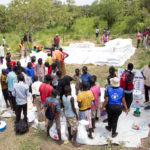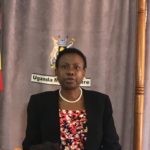The United Nations World Food Programme (WFP) has announced the suspension of food assistance to almost a third of “acutely” food insecure people in South Sudan over “critical funding shortages”.
The decision, WFP said in a statement, means that the 1.7 million people it planned to support this year will starve owing to the lack of humanitarian food assistance.
“The suspension of aid comes at the worst possible time for the people of South Sudan as the country faces a year of unprecedented hunger,” the agency said.
According to WFP, over 60% of the population is grappling with severe food insecurity during the lean season, fuelled by continuing conflict, severe flooding, localized drought, and soaring food prices exacerbated by the crisis in Ukraine.
“We are extremely concerned about the impact of the funding cuts on children, women and men who will not have enough to eat during the lean season. These families have completely exhausted their coping strategies. They need immediate humanitarian assistance to put food on the table in the short-term and to rebuild their livelihoods and resilience to cope with future shocks,” explained Adeyinka Badejo, the Acting Country Director of the WFP in South Sudan.
He added that humanitarian needs are far exceeding the funding they have received this year and that this continues, they will face bigger and more costly problems in the future, including increased mortality, malnutrition, stunting and diseases.
The latest Integrated Food Security Phase Classification (IPC) assessment warned that 7.74 million people will face severe acute hunger at the height of the lean season between June and August, while 1.4 million children will be acutely malnourished.
WFP, however, said it exhausted all options before suspending food assistance, including halving rations in 2021, leaving families in need with less food to eat.
“These latest reductions to assistance will also impact 178,000 schoolchildren who will no longer receive daily school meals – a crucial safety net that helps keep South Sudanese children in school to learn and grow,” stressed the statement.
More drastic reductions, according to the humanitarian agency, would be unavoidable, unless more funding is received, which will leave vulnerable people unable to meet their basic food needs and reverting to survival strategies such as skipping or reducing meals, selling assets, using child labour and child marriage.
Meanwhile, WFP said it requires $426 million to reach 6 million food insecure people in South Sudan this year.








